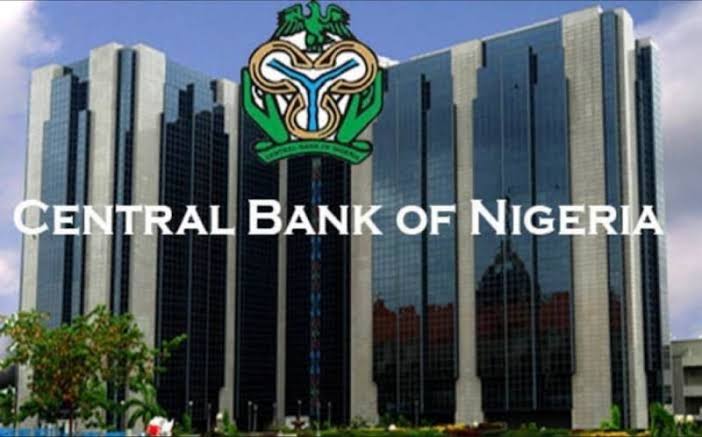The Central Bank of Nigeria (CBN) has called on financial institutions in the country to prioritize and increase their investment in cybersecurity in order to protect depositors’ funds from the growing threat of cybercriminals. As digital banking expands, this emphasis on security is becoming increasingly important for the safety of customers’ financial assets.
Dr. Adetona Adedeji, the Acting Director of Banking Supervision at the CBN, made this appeal during a panel discussion on “Fiscal and Monetary Policy Reforms: Removing Barriers to Private Sector Investment” at the ongoing Nigeria Economic Summit in Abuja. Dr. Adedeji acknowledged the rapid pace of innovation within the banking sector, especially with regard to electronic banking platforms. These advancements, while beneficial, have also made the industry more vulnerable to criminal activity. Thus, banks must take proactive steps to ensure they are well-equipped to defend against cyberattacks.

“There has been a lot of innovation in the banking sector today, especially in e-channels,” Dr. Adedeji stated. “Therefore, we require a robust risk management system. We expect every bank to implement a very strong cybersecurity framework.” His remarks underscored the urgency for financial institutions to not only keep up with technological advancements but also to anticipate the evolving tactics of cybercriminals who seek to exploit any weaknesses in the system.
He further stressed the importance of maintaining customer trust, particularly in light of the CBN’s financial inclusion initiatives, which have worked to bring more people into the banking system. “We want customers to be protected from criminals. These are individuals we have been working hard to convince to deposit their money instead of keeping it under their pillows. We don’t want a situation where, after successfully encouraging them to bank their funds under financial inclusion initiatives, hackers exploit vulnerabilities and steal their money.”

Dr. Adedeji went on to reiterate the need for comprehensive security systems that ensure depositors’ peace of mind. He emphasized the goal of building customer confidence in the banking system by saying, “We want banks to develop a very robust cybersecurity system that guarantees the safety of customers’ money, allowing them to deposit their funds today, sleep peacefully, and wake up tomorrow to find their money intact.”
In addition to cybersecurity, Dr. Adedeji touched upon the CBN’s efforts in combating inflation. He acknowledged the balancing act that the bank must perform, as it attempts to control inflation without stifling business operations. While the CBN has resorted to increasing interest rates to tackle inflation, the institution remains conscious of the strain these places on businesses.
“We are focused on targeting inflation through interest rate increases, but we understand the impact this has on businesses,” he explained. “We don’t want to reach a state of hyperinflation. We simply ask for understanding; all the policies the CBN has introduced aim to help mitigate inflation.” This delicate approach reflects the central bank’s ongoing commitment to both stabilizing prices and ensuring that the private sector remains viable.

Dr. Adedeji added, “Our current priority is price stability, but we are aware that businesses must continue to function.” His comments highlighted the dual responsibility of the CBN—to bring inflation under control while preserving an environment where businesses can thrive. The CBN’s monetary policy actions are carefully calibrated to manage inflation without tipping the economy into recession or placing undue pressure on companies operating in various sectors.
Furthermore, Dr. Adedeji addressed the CBN’s foreign exchange policy, which has also been a focal point of monetary reform. In discussing the challenges faced by rent seekers—those who profit from exploiting the foreign exchange market—he noted that the CBN is actively working to create a balanced and equitable system. “Rent seekers are facing challenges, as we strive to achieve equilibrium,” he remarked, indicating that the CBN is taking firm steps to ensure a fair and stable forex market.
He also emphasized the coordination between the CBN and fiscal authorities in managing the relationship between the Federation Accounts Allocation Committee (FAAC) disbursements and liquidity at the state level. Each time the FAAC releases monthly revenue allocations to the three tiers of government—federal, state, and local—a surge in demand for foreign exchange typically follows. The CBN is addressing this issue through close collaboration with other financial entities to minimize market disruptions caused by these periodic inflows of liquidity.
This holistic approach to reform, encompassing cybersecurity, inflation control, and foreign exchange management, reflects the CBN’s broader mission to create a stable and secure economic environment for both consumers and businesses alike. The institution remains focused on protecting depositors, ensuring price stability, and maintaining a balanced and fair financial market, even as it navigates the challenges posed by rapid innovation and global economic pressures.































